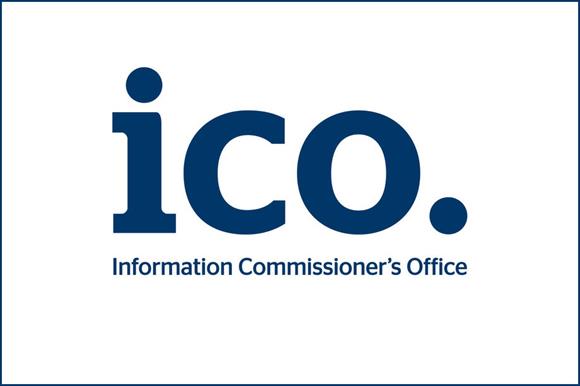What is your strategy for law firm data security?
 The news is regularly showcasing headlines about companies experiencing cyber breaches, as criminals refine their skills, finding sophisticated ways to get their hands-on personal data and intercept financial transactions. So when was the last time you reviewed your law firm data security?
The news is regularly showcasing headlines about companies experiencing cyber breaches, as criminals refine their skills, finding sophisticated ways to get their hands-on personal data and intercept financial transactions. So when was the last time you reviewed your law firm data security?
But when it comes to law firm accounts, how are you able to ensure that the information the business holds is kept safe and secure? And how are you able to ensure that you’re remaining compliant for your regulators?
Law firm data security is one of the many facets of the day to day running of business. One that regularly competes for a solicitor’s attention but may not seem as high a priority as earning fees or other more profitable business opportunities.
Due to the increasingly cyber world we live in, having cyber policies and security in place is vital to ensure cyber criminals are kept firmly in the dark. However, The ‘Cyber Security Breaches Survey 2019’, released by the Department for Digital, Culture, Media and Sport found a number of policy omissions desperately needed to protect a firm and their clients from the clutches of cyber criminals.
Only one third of UK businesses have created a cyber security policy within their organisation, with 26% training staff to spot the signs of cyber crime. Fewer than a third of organisations had also planned for a data breach.
This is where outsourcing your management accounts can help to free up your time, to focus on money earning opportunities and other priorities, whilst leaving the law firm data security, compliance and cyber security in a safe pair of hands.
An outsourced management accounts team take a belt and braces approach when it comes to security measures. They’ll have procedures and policies in place like firewalls, encryption, password protection, physical data centre anti-intrusion systems, software updates and back-up procedures. This approach ensures that your law firm data is kept secure.
The Solicitors Regulation Authority speculated in 2018 that £11million was lost in the legal sector due to cyber crime, and as a result a plethora of regulations have been instigated to help tighten law firm’s defences, and ensure firms share information with regulators as soon as issues become apparent.
Third party suppliers are able to keep their fingers on the pulse of your accounts and flag up anything that seems out of place not only to you, but to the regulators, in a timely manner. This alleviates time pressures and potential to miss an issue and come under further scrutiny.
Why The Cashroom?
Here at the Cashroom our experts are on hand to take some of the stress away from day to day business. Our expert legal cashiers can help to improve the efficiency of your law firm, whilst ensuring firms remain complaint with the SRA Account Rule Changes.
If you are considering outsourcing legal cashiering and would like to chat to someone at The Cashroom, please get in touch.
If you are regulated within the English and Welsh markets then please contact:
Alex Holt E: alex.holt@thecashroom.co.uk t: 07817 420 466
If you are regulated by the Law Society of Scotland, please contact:
Gregor Angus E: gregor.angus@thecashroom.co.uk t: 07875 598 593

 It is not surprising that more law firms are turning to portal technology to protect client and business information given the increased vulnerabilities to email communication.
It is not surprising that more law firms are turning to portal technology to protect client and business information given the increased vulnerabilities to email communication. Commissioner’s Office (
Commissioner’s Office (
 After all, change can bring risk, so you need to be confident that the strategy you implement will be worth it. Speaking to third party experts about outsourcing your account services should reassure you that the impact will be beneficial on your business moving forward.
After all, change can bring risk, so you need to be confident that the strategy you implement will be worth it. Speaking to third party experts about outsourcing your account services should reassure you that the impact will be beneficial on your business moving forward. Property hijackings (where criminals pose as owners) are escalating. In many cases, criminals will rent a property and steal the landlord’s post. They then use this to pose as the real owner and sell the house to cash buyers.
Property hijackings (where criminals pose as owners) are escalating. In many cases, criminals will rent a property and steal the landlord’s post. They then use this to pose as the real owner and sell the house to cash buyers. Information security certification (e.g. ISO 27001 or Cyber Essentials) helps to protect client and employee data. This won’t just keep sensitive data secure, it will also demonstrate to clients (and the ICO) that you take your responsibilities seriously.
Information security certification (e.g. ISO 27001 or Cyber Essentials) helps to protect client and employee data. This won’t just keep sensitive data secure, it will also demonstrate to clients (and the ICO) that you take your responsibilities seriously. At
At  Outsourcing to The Cashroom has been painless. So easy to deal with accommodating everything that we need to do, when we need to do it, whilst keeping us on the right side of the vast array of regulations.
Outsourcing to The Cashroom has been painless. So easy to deal with accommodating everything that we need to do, when we need to do it, whilst keeping us on the right side of the vast array of regulations.  At the same time, the total cost of employing in-house cashiering personnel is expensive. Because, in addition to wages, you also have to take the costs of recruitment, induction, training, mentoring, sick pay, maternity cover, holiday cover, pension contributions, and National Insurance into consideration.
At the same time, the total cost of employing in-house cashiering personnel is expensive. Because, in addition to wages, you also have to take the costs of recruitment, induction, training, mentoring, sick pay, maternity cover, holiday cover, pension contributions, and National Insurance into consideration. The Cashroom offer an invaluable service for any solicitor’s firm. Their approach is efficient, professional and responsive. They have allowed us to deal with rapid growth by taking on all accounts functionality.”
The Cashroom offer an invaluable service for any solicitor’s firm. Their approach is efficient, professional and responsive. They have allowed us to deal with rapid growth by taking on all accounts functionality.” The Cashroom has definitely been a good business move, not only because of efficiency but also in relation to compliance which can be daunting at times.”
The Cashroom has definitely been a good business move, not only because of efficiency but also in relation to compliance which can be daunting at times.” We operate a business which requires efficiency and certainty of service. The Cashroom has augmented our own internal accounts team, taking control of key elements and working closely to provide a seamless service to us.
We operate a business which requires efficiency and certainty of service. The Cashroom has augmented our own internal accounts team, taking control of key elements and working closely to provide a seamless service to us.  How quickly can you get up and running?
How quickly can you get up and running? We have been using The Cashroom’s services for three years now. We brought them in to provide a secure, efficient, compliant cashiering function to support our growing business with their flexible resource model.
We have been using The Cashroom’s services for three years now. We brought them in to provide a secure, efficient, compliant cashiering function to support our growing business with their flexible resource model.  In the Cyber Security Breaches Survey 2019, conducted by the Department for Digital, Culture, Media and Sports (DCMS), 32% of UK businesses had reported a cyber security breach in the last 12 months. Over a third admitting this breach led to a loss of data or assets.
In the Cyber Security Breaches Survey 2019, conducted by the Department for Digital, Culture, Media and Sports (DCMS), 32% of UK businesses had reported a cyber security breach in the last 12 months. Over a third admitting this breach led to a loss of data or assets. ‘Fraud the Facts 2019’ report highlighted that email (malicious redirection) fraud has become a lucrative business. Fraudsters use emails to convince a home seller or law firm to change their bank details before a payment is made resulting in £123million lost in 2018.
‘Fraud the Facts 2019’ report highlighted that email (malicious redirection) fraud has become a lucrative business. Fraudsters use emails to convince a home seller or law firm to change their bank details before a payment is made resulting in £123million lost in 2018. change makes the difference between whether you sink or swim. One way that savvy firms are choosing to adapt is by outsourcing essential business tasks, like legal cashiering.
change makes the difference between whether you sink or swim. One way that savvy firms are choosing to adapt is by outsourcing essential business tasks, like legal cashiering. Maximise your resource: Benefit from a cost based on the actual activity and skill level your firm requires, rather than having to fund sufficient senior cashiering resource to deal with complex, high-risk elements, while using that same resource to carry out the more mundane, junior tasks.
Maximise your resource: Benefit from a cost based on the actual activity and skill level your firm requires, rather than having to fund sufficient senior cashiering resource to deal with complex, high-risk elements, while using that same resource to carry out the more mundane, junior tasks.  The new SRA Accounting Rules are designed to be far more outcome-focused, and are shorter and more targeted than the existing rules. They continue to focus on the protection of client money but with the freedom for solicitors to use professional judgement in considering how the standards are met, by applying simpler accounting rules that focus on the principles of safeguarding client money, rather than lots of specific technical rules.
The new SRA Accounting Rules are designed to be far more outcome-focused, and are shorter and more targeted than the existing rules. They continue to focus on the protection of client money but with the freedom for solicitors to use professional judgement in considering how the standards are met, by applying simpler accounting rules that focus on the principles of safeguarding client money, rather than lots of specific technical rules. Under the new rules the concept of unpaid or incurred disbursements has been removed, meaning disbursements are only to be considered as disbursements when paid.
Under the new rules the concept of unpaid or incurred disbursements has been removed, meaning disbursements are only to be considered as disbursements when paid.